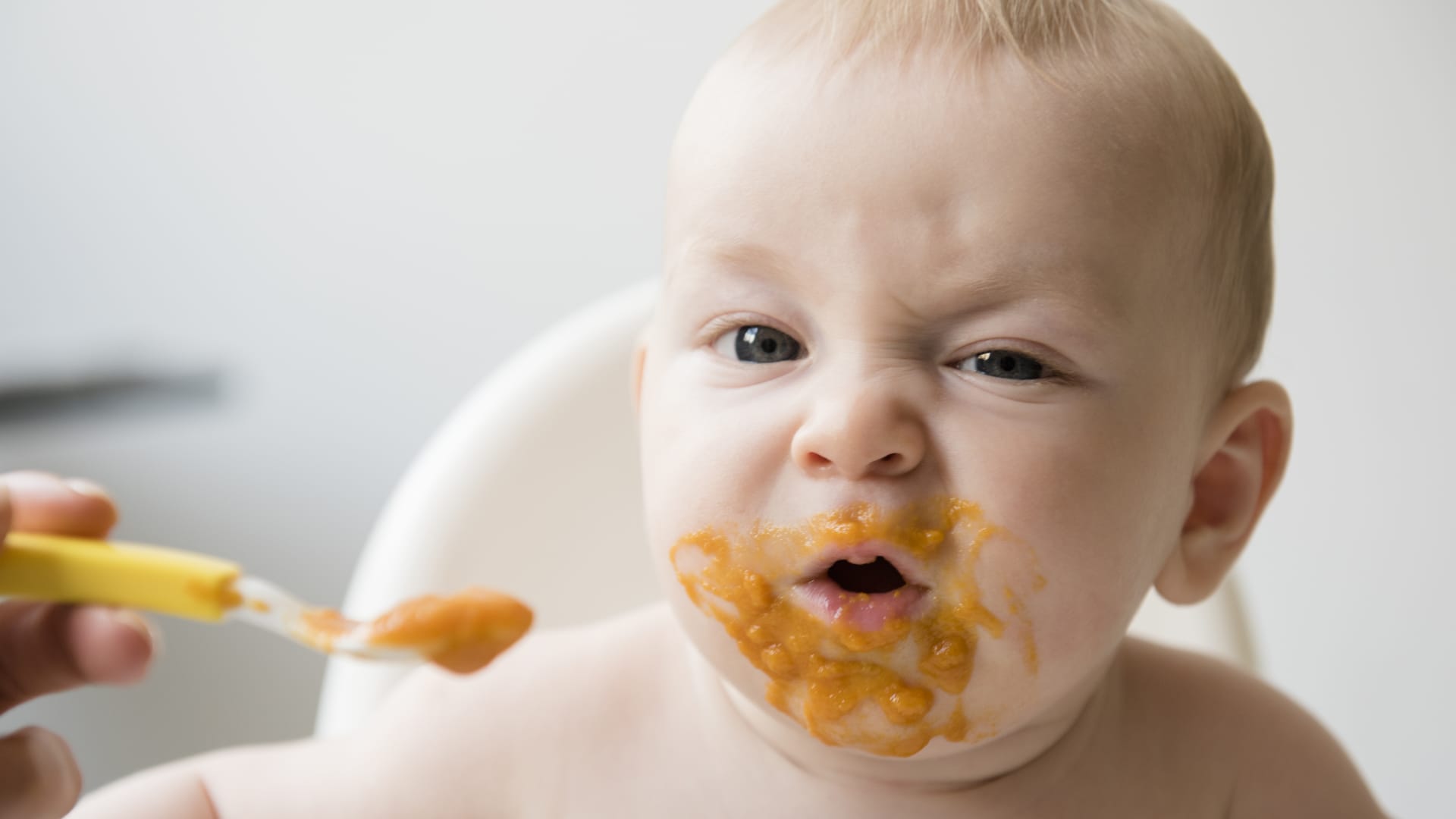
Jgi/jamie Grill | Tetra Images | Getty Images
The Food and Drug Administration proposed new limits Tuesday on lead in baby food, in an effort to reduce exposure to a toxin that can impair childhood development.
The lead limits apply to processed food consumed by children younger than two years old. In a statement, FDA Commissioner Dr. Robert Califf said the limits would reduce lead exposure from these foods by as much as 27%.
related investing news


The proposed lead limits are not legally binding on the industry, but the FDA said it would use them as a factor in deciding whether to take enforcement action against a company for selling contaminated food.
The agency proposed the following lead concentration limits for baby food:
- 10 parts per billion for fruits, vegetables, yoghurts, custards and puddings, mixtures, and single ingredient meats. This would reduce exposure by 26%.
- 20 parts per billion for root vegetables. This would reduce exposure by 27%.
- 20 parts per billion for dry cereals. This would reduce exposure by 24%.
Lead is toxic and particularly dangerous for young children. It can impair brain development and the nervous system, resulting in learning disabilities and behavioral difficulties.
Lead exposure through food among children ages 1 to 3 has declined 97% since the 1980s, according to the FDA. Though progress has been made over the years, the agency launched an effort in 2021 to reduce the levels of lead, arsenic, cadmium and mercury in children’s food to the greatest extent possible.
Food consumed by children can contain lead due to contaminated water or soil, industrial activity and old lead-containing equipment used to make food, according to the FDA. The agency said it’s not possible to completely remove lead from the food supply, but the limits should push industry to take measures to reduce its presence as much as possible.







